The views expressed in our content reflect individual perspectives and do not represent the authoritative views of the Baha'i Faith.
Many years ago, when the epidemic of homelessness began in the United States, a few friends and I wanted to do something about it—so we started a non-profit organization called Homeless Health Care Los Angeles. We based it on Skid Row in downtown L.A., and began trying to help chronically homeless people. We got funding through grants, individual donations and even some corporate support. We hired outreach workers, therapists, counselors and physicians to treat substance abuse, mental illness and many other conditions. Soon we were treating thousands of homeless clients. Then, to make things even harder than they already were, a new police commissioner rode into town.
The commissioner implemented a trendy new criminal justice theory called “Broken Windows.” Here’s how Wikipedia defines that it:
The broken windows theory is a criminological theory of the norm-setting and signaling effect of urban disorder and vandalism on additional crime and anti-social behavior. The theory states that maintaining and monitoring urban environments to prevent small crimes such as vandalism, public drinking, and toll-jumping helps to create an atmosphere of order and lawfulness, thereby preventing more serious crimes from happening.
The two people who came up with the broken windows theory—a sociologist named James Q. Wilson and a criminologist named George L. Kelling—had written:
Consider a building with a few broken windows. If the windows are not repaired, the tendency is for vandals to break a few more windows. Eventually, they may even break into the building, and if it’s unoccupied, perhaps become squatters or light fires inside.
Or consider a pavement. Some litter accumulates. Soon, more litter accumulates. Eventually, people even start leaving bags of refuse from take-out restaurants there or even break into cars. – Atlantic Monthly, March, 1982.
The broken windows theory typically assigns police officers to look for petty crimes and enforce minor infractions with a “zero-tolerance” mentality. The police then cite people for things like loitering or jaywalking or graffiti or public consumption of alcohol or sleeping on the street—in the hope of preventing larger crimes. The theory may work in some places, but in our experience it sure backfired on Skid Row. Why? Because homeless people loiter in public places by definition—since they have no homes. They sleep on the sidewalks because they have no beds or bedrooms.
So when our impoverished Skid Row clients got tickets for those kinds of minor infractions, they couldn’t pay the fines. The tickets then “went to warrant,” which meant the police issued warrants for their arrest. The original infraction may have been a petty one, but failing to pay the fine became a misdemeanor and then, when it still wasn’t paid, sometimes became a felony. That meant the police had to arrest our clients and jail them, virtually criminalizing their poverty.
That’s how the Men’s Central Jail in downtown Los Angeles became the world’s largest mental institution and debtor’s prison. Built to house 5200 inmates, it now houses 17,000. Thousands of mentally ill homeless people wound up there, including hundreds of our Homeless Health Care clients, all because of a theory. I can tell you this—the jail certainly had no broken windows.
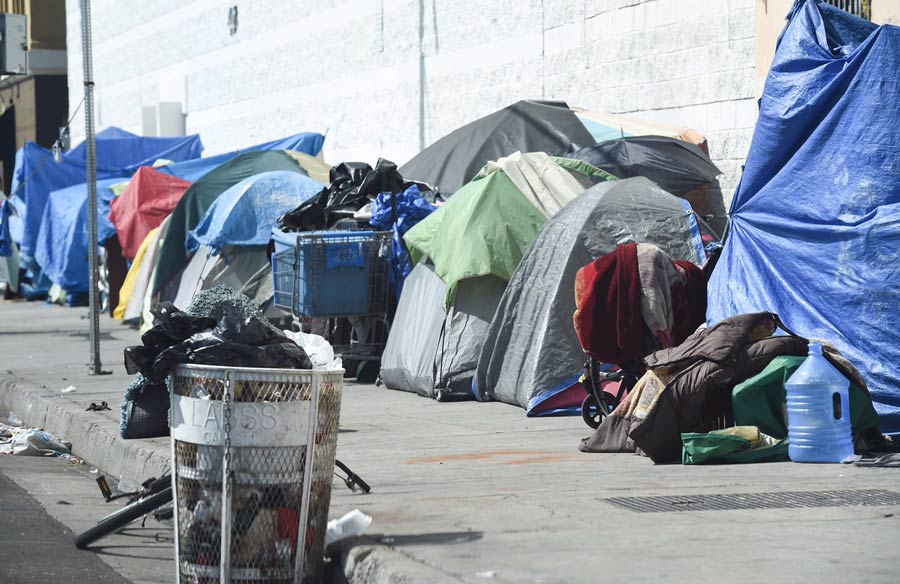
Since that time, the broken windows theory has been debunked by a whole host of studies. We now know that it tends to target minorities, the very poor and those who don’t have access to treatment for mental health or substance abuse problems. Its primary application in New York City, with the NYPD’s “stop and frisk” policy—has since been ruled unconstitutional. The Federal judge who made that decision said “it amounted to a policy of indirect racial profiling.”
One of the best-known studies on broken windows, in the American Journal of Sociology, quashed the premise of the theory, saying that “cohesion among residents combined with shared expectations for the social control of public space,” actually causes the wide variance in crime rates from one place to another.
Here’s another word for cohesion: unity. Multiple studies have shown that local unity or cohesiveness, which many places try to build up with “Neighborhood Watch”-type crime prevention programs, determines the crime rate more than any other single factor.
Do you know your neighbors? Do you have good relationships with your neighbors? Do you get together and talk with your neighbors? If you answered yes to those three questions, chances are you care about the environment you live in and the people who live around you, and do your best to protect it and them from crime and criminals.
This fundamental definition of unity, research has proven, leads to safer conditions. Wherever you find a unified neighborhood, village, town or city, crime rates inevitably decline to a very minimal level. The underlying basis of that unity, the Baha’i teachings point out, comes from our willingness as individuals to see no one as a stranger or an alien:
Cleanse ye your eyes, so that ye behold no man as different from yourselves. See ye no strangers; rather see all men as friends, for love and unity come hard when ye fix your gaze on otherness. And in this new and wondrous age, the Holy Writings say that we must be at one with every people; that we must see neither harshness nor injustice, neither malevolence, nor hostility, nor hate, but rather turn our eyes toward the heaven of ancient glory. For each of the creatures is a sign of God, and it was by the grace of the Lord and His power that each did step into the world; therefore they are not strangers, but in the family; not aliens, but friends, and to be treated as such. – Abdu’l-Baha, Selections from the Writings of Abdu’l-Baha, p. 24.
Next: The New Jim Crow and the Prison-Industrial Complex
You May Also Like
Comments



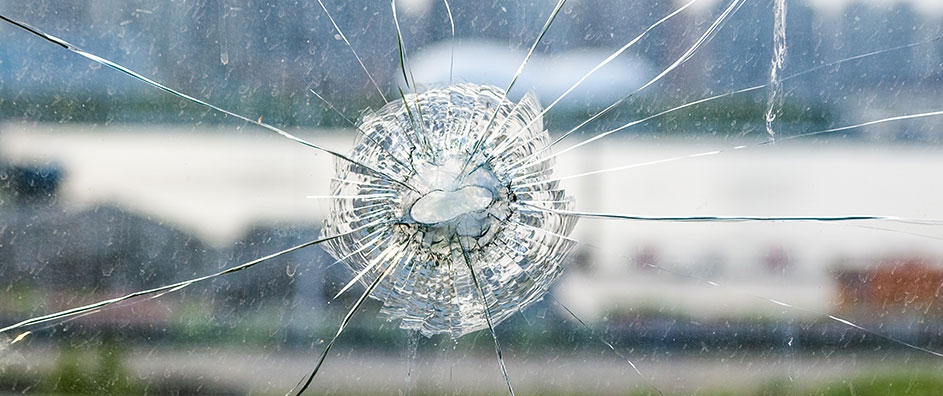

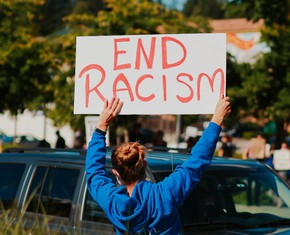
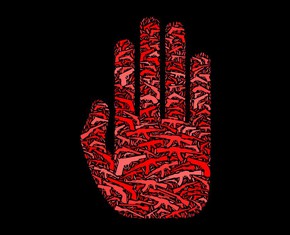
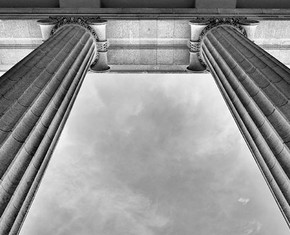









"broken windows" objections. I
needed to think more about it.
I will stand by the idea that the negative PERCEPTION of a decaying physical environment, and of
"social disorder" has to create
discouragement, sadness, and
frustration. Of course, these can
lead to apathy, anger, and declining
good intentions. I can see now,
though, that if there is "cohesion"
and "shared expectations", that
would help offset those perceptions, as well as give hope for any needed changes through group action.
“The law, in its majestic equality, forbids rich and poor alike to sleep under bridges, to beg in the streets, and to steal their bread.” - Anatole France
are very convincing, because they're
based on what you've observed while
also recognizing the folly of punishing poverty. I think the "broken windows" premise that
deteriorating conditions cause
deteriorating morale and attitudes
is a psychological "given". Of course,
if we get carried away and condemn
nonconformity, that also creates
discouragement and declining morale in people outside the mainstream. That would be true
even if those folks were not trapped
in a poverty cycle, as the people David mentioned were. It seems to
me moderation ...is key here, avoiding
rigid intolerance but maintaining
public safety and a relatively clean
physical environment.
What doesn't work is fining the poor, who have no way to pay. that's why they are on the street in the first place. Again, the Baha'i teaching states that accommodation must be made for the homeless, as well as training institutes for them and sheltered workshops. But none of this obviates the fundamental principle that a clean and orderly environment discourages crime, when compared to a chaotic and dirty one. We who live in New York City have seen the results with our own eyes. It is impossible to imagine the occurrence of a housing boom or a rise over time in real estate prices in the City unless public safety hd been successfully addressed. Because, I remember Brooklyn Brownstones on beautiful, leafy streets selling for $50,000. because the streets were so unsafe that none could stand to live there. Further evidence is provided by there being no other significant change in policing but the application of the Broken Windows theory of law enforcement.
Dalton Garis
Flushing, Queens
New York City